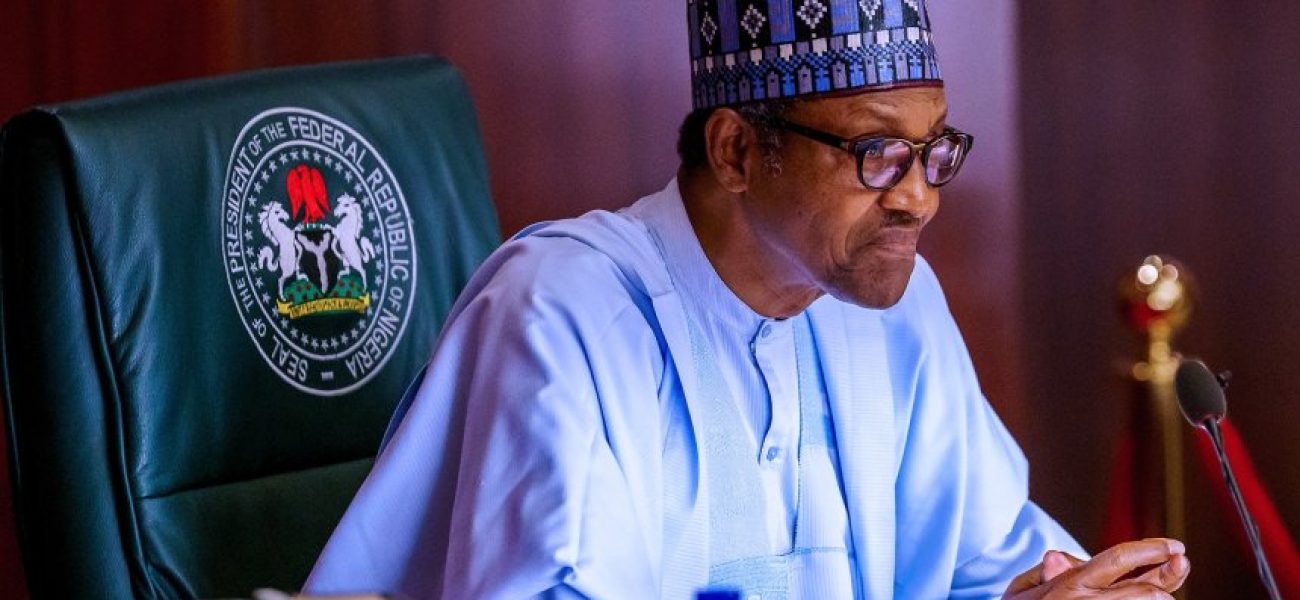President Muhammadu Buhari on Thursday, June 18, after meeting with heads of security agencies in the country, including the Service Chiefs and the Inspector General of Police has warned them to ship out. After several years of citizens’ complaints against the Service Chiefs and their inability to combat terrorism, banditry, as well as failure to protect the territorial integrity of the country, and having kept them in office way beyond their statutory tenures and retirement age, Buhari has again warned them to live up to their responsibilities. Nigerians have also complained that the impact of resources put into the military has not shown commensurate yield and that insecurity continues to pervade the country following from the activities of bandits, terrorists, herdsmen, marauders and several other criminal gangs. The Senate President, Speaker of House of Representatives, members of the National Assembly, governors, citizen groups and associations have complained and protested the incompetence and failures of security services and their leadership, without any responsible action being taken by the President who is the Commander-in-Chief of the Armed Forces. Inaction has of course, seen the country tethering on the brink of collapse.
In the President’s home State, Katsina, protesters took to the streets in their numbers to express their displeasure over the incessant killings and President Buhari’s several directives on security issues and condemnation of attacks, which have not improved the security situation in any way. However, this resulted in the detention of the organiser of the protest and several protesters, on the basis that they were violating the COVID-19 regulation prohibiting large gatherings.
The European Union (EU) in a joint statement by the High Representative/Vice President, Josep Borrell and Commissioner for Crisis Management, Janez Lenarcic on June16, decried the death of over 160 persons in Northern Nigeria since May 28, 2020 and the security threat posed to Nigeria by terrorism and other acts of violence. The statement also underscored increased humanitarian needs in North East Nigeria, occasioned by conflict, food insecurity and the COVID-19 pandemic. It further stressed that international humanitarian law must be safeguarded and respected by all parties to the conflict in Nigeria and elsewhere; demanded that civilians and humanitarian personnel should not be targeted, while unimpeded passage of humanitarian relief should be facilitated.
At President Buhari’s meeting with security chiefs on June 18, he was reported to have stated that their efforts to tackle insecurity were not good enough, adding that further deterioration of the security situation would no longer be tolerated, going forward. However, Nigerians cannot reasonably expect things to take a positive turn anytime soon, as this is not the first time the President is issuing such warnings to the security chiefs, who have overstayed their tenures in spite of the worsening security situation in the country, without taking any concrete steps. The Senate President, Ahmed Lawan while expressing the National Assembly’s readiness to receive a supplementary budget to aid security agencies to tackle insecurity, stated that heads of agencies, particularly Service Chiefs will “be shown the way out if they fall short of expectations.” It will be recalled that the National Assembly had called for the sack of Service Chiefs. The claim by the National Security Adviser (NSA), Mohammed Monguno, that no Nigerian President has spent as much as President Buhari has spent on the purchase of arms further raises questions of transparency and accountability within the military, as the funds appropriated for security agencies do not reflect any strategy to effectively tackle insecurity in the country. It would seem that Nigerians have been left to their fate, as State governments grapple to control the situation, with the Federal Government not taking enough steps to address insecurity.

